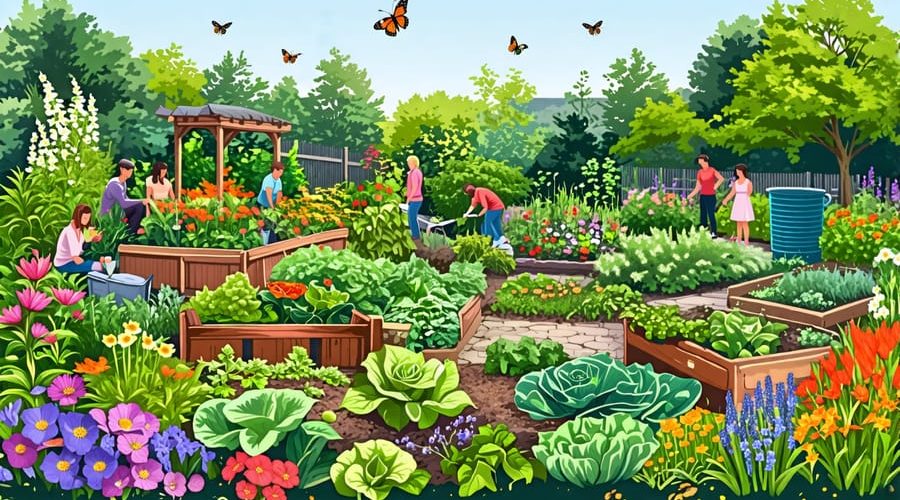
Grow a Greener Garden: 7 Surprising Benefits of Sustainable Gardening
Unleash the power of sustainable gardening to cultivate a thriving world. By working in harmony with nature, you can create lush, productive gardens that nourish both people and planet. Sustainable practices like composting, water conservation, and organic methods build healthy soil, conserve resources, and protect biodiversity. The benefits ripple out – from providing fresh, nutrient-dense food to purifying the air and water. Beyond environmental gains, sustainable gardens offer a wealth of personal rewards. Tending the earth reduces stress, boosts wellbeing, and forges a deep connection with the cycles of life. The fruits of your labor supply your table with the purest, most flavorful produce possible. And by sharing knowledge, seeds and surplus, you’ll cultivate thriving communities. Discover how embracing sustainable gardening can enrich your life and help heal our world.
Conserves Water and Other Resources
Sustainable gardening practices not only benefit the environment but also help conserve precious resources like water. Drip irrigation systems deliver water directly to plant roots, minimizing evaporation and overwatering. This targeted approach can save significant amounts of water compared to traditional sprinklers that often waste water on non-plant areas. Mulching is another key strategy for conserving moisture in the soil. Apply a thick layer of organic mulch, such as shredded leaves or bark, around plants to reduce evaporation, moderate soil temperature, and suppress water-stealing weeds. As the mulch breaks down, it adds nutrients to the soil too. Planting native species is one of the best ways to create a water-wise garden. Native plants have evolved to thrive in your local climate and soil conditions, requiring less supplemental watering once established. They also provide habitat for beneficial wildlife and pollinators. Collecting rainwater in barrels or cisterns is another smart sustainable practice. This free resource can be used to irrigate plants during dry spells. Greywater from sinks and showers can be diverted to the garden as well. By conserving water and resources, you’ll cultivate a healthier garden while lowering your environmental impact and utility bills. Small changes really add up!
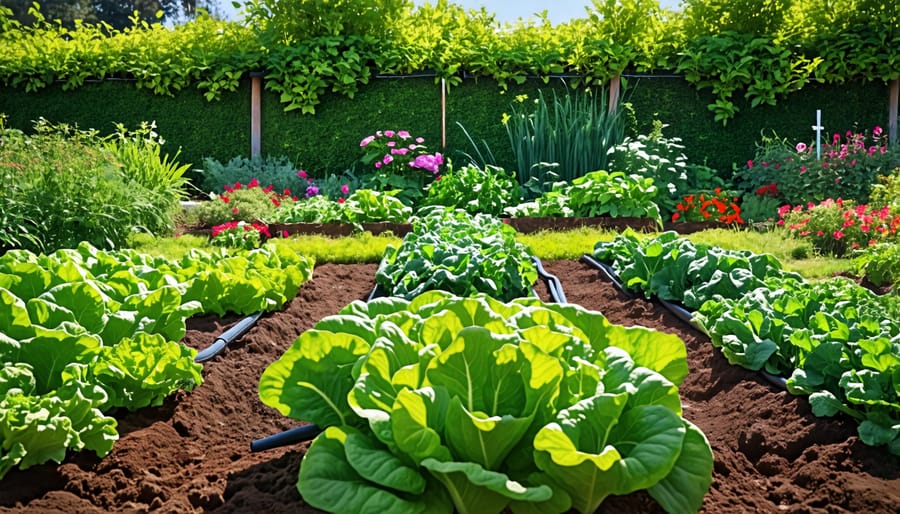
Supports Biodiversity and Ecosystems
Sustainable gardens act as vibrant sanctuaries for a diverse array of beneficial insects, pollinators, birds, and other wildlife. By incorporating native plants, avoiding pesticides, and creating varied habitats, these gardens provide habitats and vital food sources that support thriving ecosystems. Pollinators like bees, butterflies, and hummingbirds are attracted to the nectar-rich flowers, while insects find shelter in the lush foliage. Birds feast on seeds, berries, and insects, their cheerful songs filling the air. Even small mammals and reptiles make their homes in the garden’s nooks and crannies. By nurturing this biodiversity, sustainable gardens contribute to the intricate web of life, fostering balanced and resilient ecosystems. They serve as precious oases in urban and suburban landscapes, offering refuge and sustenance to wildlife that might otherwise struggle to find suitable habitats. As these gardens bloom and thrive, they not only bring beauty and joy to our lives but also play a vital role in preserving the delicate balance of nature. By embracing sustainable gardening practices, we become stewards of the environment, nurturing the incredible diversity of life that surrounds us and ensuring a healthier planet for generations to come.

Improves Soil Health Naturally
Sustainable gardening practices like composting, cover cropping, and crop rotation work with nature to nourish the soil and improve its structure without relying on synthetic fertilizers or pesticides. Composting transforms kitchen scraps and yard waste into nutrient-rich organic matter that feeds beneficial microbes, improves drainage, and helps retain moisture in the soil. Cover crops, also known as green manures, are planted between main crop rotations to protect and enrich the soil. They prevent erosion, suppress weeds, and add valuable nutrients and organic matter when tilled under. Rotating crops by plant family each season helps break pest and disease cycles while balancing nutrient demands. These practices enhance the soil food web, which is essential for healthy plant growth. The diverse microorganisms in vibrant, living soil form symbiotic relationships with plant roots, improving access to nutrients and water. Earthworms and other soil life create channels for better aeration and drainage. Over time, the soil structure becomes more stable, porous, and resilient. The result is a thriving garden ecosystem that produces robust, nutrient-dense plants with natural resistance to stressors. By working in harmony with natural cycles, sustainable gardening builds healthy soil that yields healthy harvests year after year – no chemicals required.
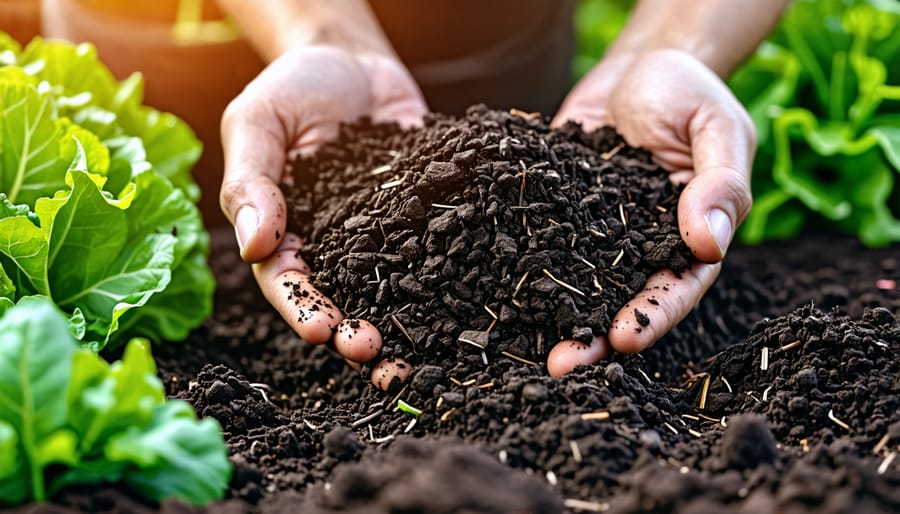
Produces Fresh, Organic Food
Growing your own organic produce offers unparalleled freshness, flavor and nutrition. Imagine plucking a ripe, juicy tomato or crisp lettuce straight from your backyard, bursting with vibrant color and taste. Home-grown organic vegetables contain higher levels of vitamins, minerals and antioxidants compared to store-bought. Tending your own sustainable garden also provides significant cost savings over time. A packet of seeds costs a few dollars but yields a generous harvest. It ensures food security too – less reliance on supply chains and the assurance of healthy, readily available produce. Experienced gardeners rave about the difference. “Nothing compares to the sweetness of a strawberry picked at peak ripeness from your own patch,” enthuses Mark, an avid organic grower. “The satisfaction of serving your family a meal you nurtured from seed is incredibly rewarding.” Sarah, another home gardener, appreciates the environmental benefits. “By using organic methods, I’m protecting biodiversity, preventing chemical runoff, and rebuilding soil health. It’s gratifying to work in harmony with nature’s cycles.” Whether you have a sprawling yard or a few patio pots, you can reap the joys and benefits of growing your own organic produce – unmatched freshness, exceptional flavor, optimal nutrition, financial savings, and the security of a sustainable food source.
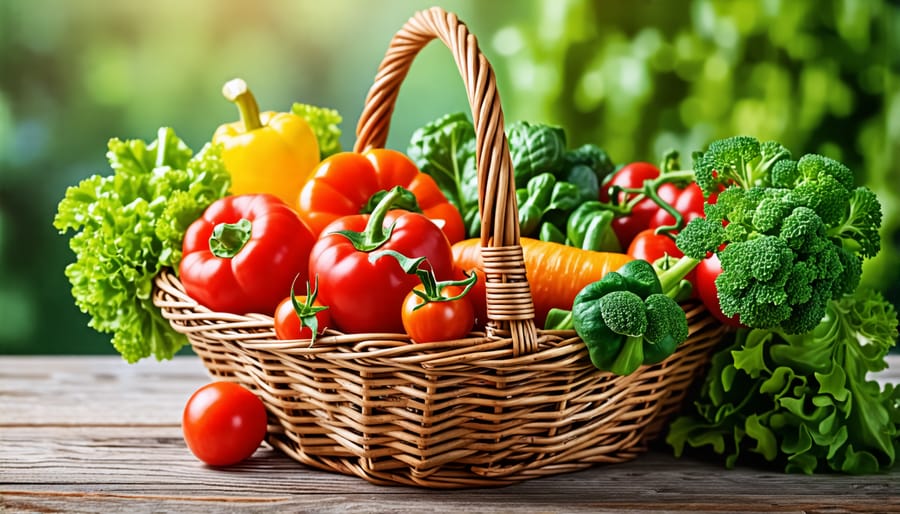
Combats Climate Change
Sustainable gardens play a vital role in combating climate change. By sequestering carbon in the soil through practices like composting and cover cropping, these gardens actively remove greenhouse gases from the atmosphere. The increased vegetation in sustainable landscapes also helps reduce the urban heat island effect, cooling surrounding areas. Since sustainably grown food is often consumed locally, it cuts down on the emissions associated with long-distance transport. Moreover, by minimizing the use of fossil fuel-powered equipment for mowing and maintenance, eco-friendly gardens further curb emissions. Even small actions, like choosing manual tools or electric alternatives, make a difference. Sustainable gardens prove that individual efforts can have a meaningful impact in the fight against climate change. By adopting these practices in our own backyards, we contribute to a greener future for all.
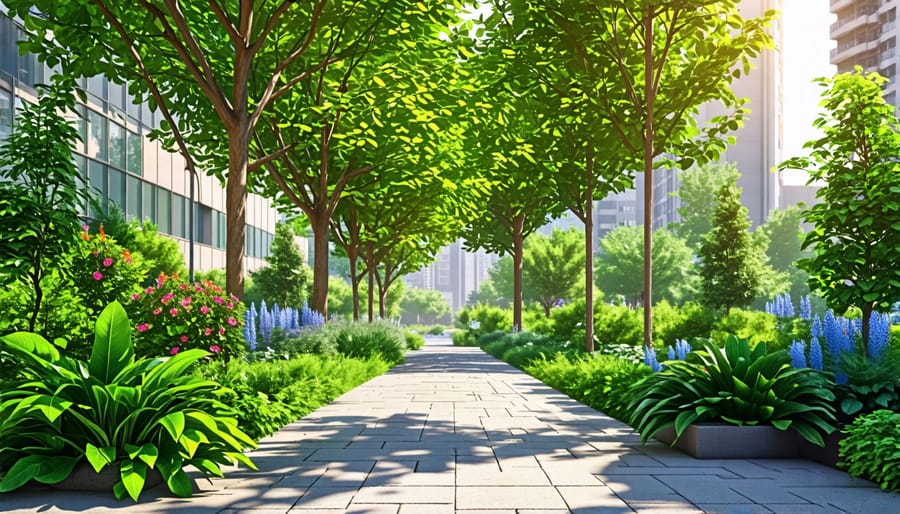
Builds Stronger Communities
Sustainable gardening fosters a sense of community by bringing people together around a shared passion for nurturing the earth. It provides opportunities to connect with neighbors, swap tips and seeds, and collaborate on projects that beautify shared spaces. Getting kids involved in the garden is a wonderful way of engaging kids with nature, teaching them valuable life skills, and instilling eco-conscious values from a young age. As your garden thrives, you may find yourself with an abundance of fresh produce to share with friends, family, or even donate to local food banks – nourishing both bodies and community spirit. Gardening is also a fulfilling eco-friendly activity that supports physical and mental well-being, reducing stress and providing gentle exercise in the fresh air and sunshine. By growing together, we can cultivate not only healthy plants, but also stronger, more vibrant communities.

Conclusion
In conclusion, sustainable gardening offers an impressive array of benefits that positively impact the environment, your health, and your community. From reducing waste and conserving resources to providing fresh, nutritious produce and fostering biodiversity, earth-friendly gardening practices create a healthier, more resilient ecosystem. Sustainable gardens also promote physical activity, reduce stress, and provide opportunities for social connection and learning. By implementing sustainable techniques in your own garden, you can contribute to a greener, more vibrant future while reaping the personal rewards of a thriving, eco-friendly outdoor space. Start small by composting, using natural pest control methods, and choosing native plants, and watch your sustainable garden flourish.
